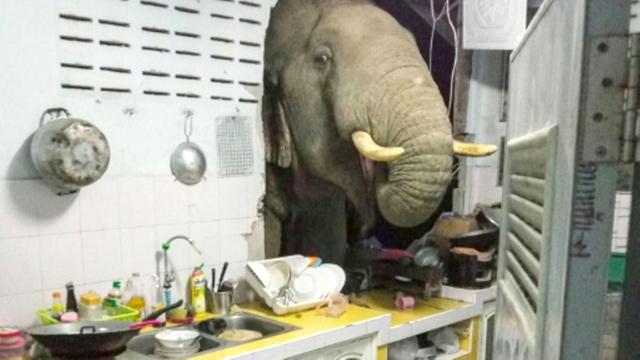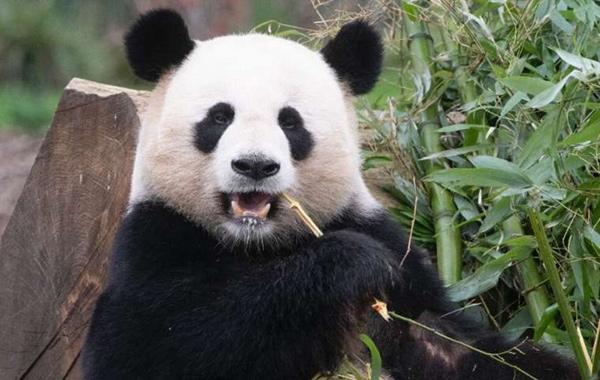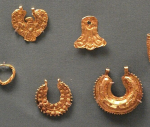You are here
Asian deer’s comeback marks rare China conservation success
By AFP - Dec 29,2021 - Last updated at Dec 29,2021
By Poornima Weerasekara
Agence France-Presse
BEIJING — An Asian deer’s comeback from the brink of extinction marks a rare success for China’s conservation efforts, which have long faced criticism for focusing on only a handful of flagship species.
Pere David’s deer was on the verge of disappearing towards the end of the 19th century, threatened by hunting for their meat and a loss of wetland habitat.
But after an extraordinary tale of survival — which involved being smuggled to Europe and hidden from wartime bombing raids, before finally returning to China — its population has grown to several thousand.
The comeback is a “remarkable tale of sheer luck and dedication of a small group of conservationists in China and abroad”, said Zhou Jinfeng, whose NGO helped bring the creatures back from Europe.
News of the success comes as Beijing seeks to play a more prominent role in international conservation, with China this week hosting a key UN conservation summit.
At the opening of the meeting, President Xi Jinping pledged $233 million to a new fund to “support the cause of biodiversity conservation in developing countries”.
But experts say tales like that of the Pere David’s deer remain rare, with decades of breakneck growth exacting a heavy toll on China’s biodiversity.
While the country has made significant strides in protecting its best-known species, such as giant pandas and elephants, critics say it has done far worse in safeguarding many other creatures.
From 1970 to 2010, almost half of China’s land-based vertebrates vanished, according to the conservation charity WWF.
The country now has more than a thousand species that are fast disappearing due to developers encroaching on habitats, according to the International Union for the Conservation of Nature.
And despite designating nearly a fifth of the country as protected areas, activities such as illicit mining and logging have fragmented reserves and left endangered animals marooned in “forest islands” without much room to forage or find mates.
China’s poor climate record — it is the world’s top greenhouse gas emitter, with the economy still largely powered by polluting coal — has also put further pressure on animal populations.
‘China is home’
The deer are named after Pere Armand David, a French missionary and zoologist who spotted what was believed to be the only herd of the creatures at the imperial hunting ground in Beijing.
In 1895, a flood nearly wiped them out, and five years later the hunting ground was occupied by German troops who shot and ate the remaining deer — resulting in their extinction in China.
But some of the creatures had already been smuggled to Europe, and several were bought by British politician Herbrand Russell from the Berlin Zoo.
He bred them on his estate, although he was forced to move his herd several times during World War II to protect it from bombing raids. All Pere David’s deer alive today are descendants of this herd, according to the WWF.
It was not until 1985 that the creatures made their way back to China, when 22 were returned as a goodwill gesture during negotiations as Britain prepared to hand back Hong Kong to Beijing.
Today, they are back in the imperial hunting ground south of the Chinese capital, where about 200 animals happily frolic in mud by the side of a lake in a semi-wild conservation site.
Their captive population is now about 8,000, according to official figures, although experts warn of future risks.
The population lacks genetic diversity, meaning they are more vulnerable to disease, have a shorter life span and suffer more miscarriages, said Bai Jiade and a group of other conservationists in a letter published in the journal Science this year.
“Moreover, there is no master plan for Pere David’s deer conservation at the national level,” said Bai, director of the Beijing Pere David’s deer Ecological Research Centre.
But Zhou is optimistic. Small groups of the deer are now being released back into the wild, and sightings are being reported around the country.
“The food, the climate and the environment all suit them,” said Zhou.
“China is their home.”
Related Articles
The hunting season for three kinds of doves starts in mid-June, the Royal Society for the Conservation of Nature (RSCN) announced on Wednesday.
PARIS — The pandemic and climate change is testing as never before the delicate balance of human co-habitation with the natural world.As an
PARIS — The Chinese giant salamander, the largest amphibian in the world, is not cute. Weighing as much as an adult human, it has slimy


















